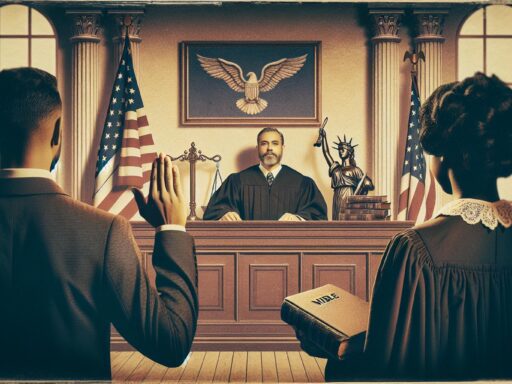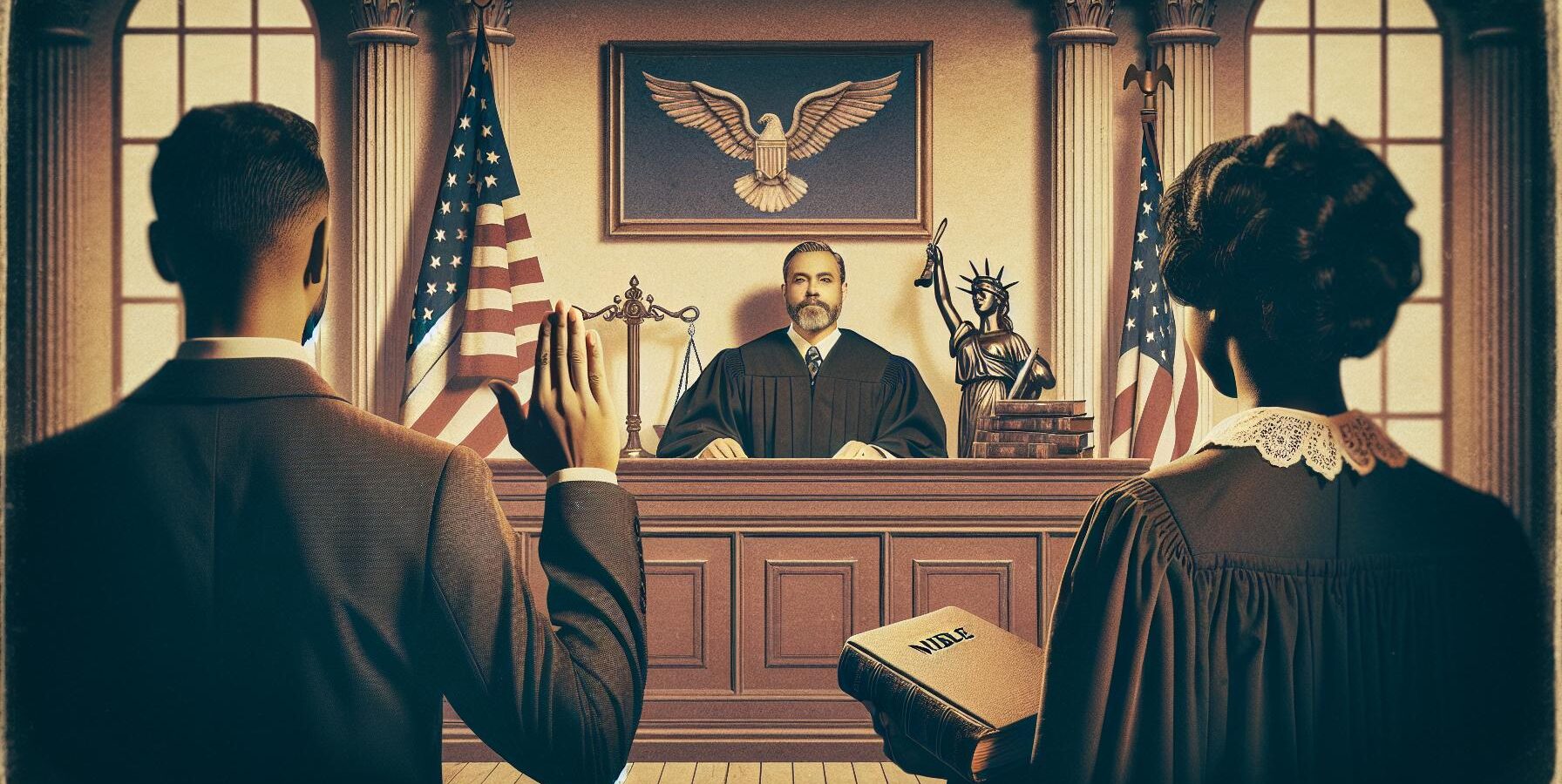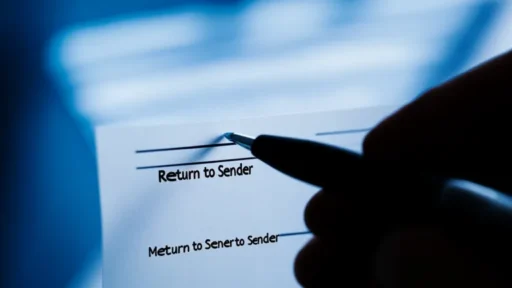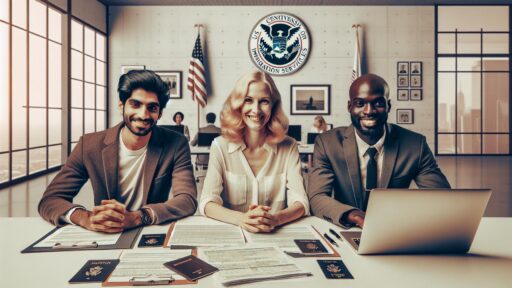Oaths have played a pivotal role in human society for centuries, binding individuals to their words and actions through solemn promises. Whether in a courtroom, a wedding ceremony, or a swearing-in for public office, oaths serve as powerful tools to establish trust and accountability. They’re more than just formalities; they’re commitments that carry moral and sometimes legal weight.
In various cultures and religions, taking an oath often invokes a higher power, underscoring the seriousness of the pledge. This practice isn’t just about tradition; it’s about reinforcing the integrity and reliability of the person making the vow. By understanding the historical and cultural significance of oaths, one can appreciate their enduring importance in maintaining social order and personal honor.
Historical Background of Oaths
Oaths have roots tracing back to ancient civilizations. In ancient Egypt, public officials took oaths to uphold duties, invoking gods like Ra or Osiris as witnesses. This practice demonstrated a commitment to truth under divine observation.
Ancient Greece incorporated oaths in legal and official matters. Greek citizens took oaths in courtrooms, with gods like Zeus as guarantors of their honesty. Greek warriors also made oaths before battles to affirm loyalty.
In ancient Rome, oaths were integral to both public and private life. Roman soldiers swore oaths of fidelity to the emperor, while magistrates took similar oaths to perform their obligations faithfully. Roman religion heavily influenced these practices, often involving the pantheon of Roman gods.
The Middle Ages saw oaths as essential components of social and legal systems. Feudal lords and vassals swore fealty oaths, ensuring loyalty and service. Medieval court cases also depended on oaths to establish truth.
Different religions have incorporated oaths into their traditions. Christianity, for instance, uses oaths in sacraments and ceremonies, often invoking God’s name. Islam mandates oaths in legal contexts, binding individuals under divine witness.
Throughout history, the core essence of oaths remains constant. They bind individuals to their word, invoking higher authorities—whether divine or societal—to enforce the seriousness and trustworthiness of their commitments.
Types of Oaths
Oaths come in various forms, each serving distinct purposes based on the context in which they are used. Below are descriptions of some common types of oaths.
Judicial Oaths
Judicial oaths are administered in legal settings to uphold the integrity of the judicial process. These oaths compel individuals, like witnesses, jurors, and judges, to tell the truth or perform duties with impartiality. Witnesses swear in court to provide truthful testimony, while jurors promise to deliver fair judgments based on evidence and law.
Oaths of Office
Oaths of office are taken by individuals assuming public positions, ensuring they perform their responsibilities honestly and to the best of their ability. Elected officials, civil servants, and law enforcement officers publicly recite these oaths. For example, the President of the United States swears an oath to “faithfully execute the Office of President” and “preserve, protect, and defend the Constitution”.
Oaths of Allegiance
Oaths of allegiance affirm loyalty to a nation, entity, or sovereign. These oaths solidify the relationship between individuals and the state and are often required for naturalization and military service. New citizens swear loyalty to their new country, pledging to uphold its laws and support its sovereignty. Military personnel vows to defend their nation against all enemies, ensuring national security and cohesion.
Cultural Significance of Oaths
Oaths hold cultural significance by embodying the values and beliefs of societies. Throughout history, different cultures have utilized oaths to establish trust and accountability among their members. For example, in medieval Europe, knights took chivalric oaths to uphold honor, bravery, and loyalty, reflecting the societal ideals of that era. These vows reinforced the cultural fabric by promoting ethical behavior and social order.
In many indigenous cultures, oaths play a role in maintaining communal harmony. Tribal leaders often swear oaths to protect their people and adhere to traditional laws, ensuring the well-being of their communities. These solemn promises bind leaders to their duties under the scrutiny of their ancestors and the spirits, integrating spiritual beliefs with governance.
Religious communities often use oaths to affirm faith and commitment. In Christianity, baptismal vows and marital oaths signify a pledge to God and community, binding individuals to spiritual and moral obligations. Similarly, in Islam, oaths taken on the Quran during legal proceedings emphasize the gravity of truthful testimony, rooted in divine accountability.
Political contexts also showcase the cultural importance of oaths. Swearing-in ceremonies of leaders, such as the U.S. Presidential Inauguration, illustrate the deep-seated value placed on oaths as instruments of public trust. These oaths reinforce the leader’s dedication to serving the populace and upholding the laws and constitution of the land.
Additionally, oaths transcend individual commitments, shaping collective identity and shared values. They symbolize a society’s dedication to principles such as honesty, integrity, and responsibility. By swearing oaths, individuals publicly affirm their adherence to these values, thus fostering a cohesive and trustworthy community.
This cultural significance of oaths demonstrates their power to unite people, uphold societal structures, and embed ethical standards across diverse contexts and epochs.
Legal Implications of Breaking an Oath
Breaking an oath can lead to significant legal consequences. In a courtroom setting, perjury is the term used for lying under oath, which is a criminal offense. Perjury is considered a serious crime because it undermines the judicial system’s integrity. Convicted individuals might face imprisonment, fines, or both, depending on the jurisdiction.
For public officials, violating an oath of office can result in severe repercussions. Removal from office is a common consequence, often followed by disqualification from holding future positions. In some cases, breaking an oath may lead to criminal charges, especially if it involves corruption or abuse of power. Historical examples illustrate the gravity of such violations, showing that accountability is paramount in maintaining trust in public institutions.
Military personnel face strict penalties for oath violations. Courts-martial prosecute those who violate their oath, with penalties ranging from dishonorable discharge to imprisonment. These strict measures ensure discipline and uphold the institution’s values of honor and duty.
Civil liabilities also arise when oaths are broken outside of a criminal context. Contracts and sworn affidavits rely on the honesty and commitment of the individuals involved. If someone breaches an oath in such contexts, they can be sued for damages, resulting in financial loss and reputational harm.
Different societies uphold the seriousness of oaths by embedding strict legal frameworks. Legal sanctions serve as a deterrent, emphasizing the importance of truth and integrity in various spheres. This integration of legal consequences reinforces the binding nature of oaths, ensuring that individuals understand the gravity of their commitments.
Modern Perspectives on Oaths
Oaths continue to play a vital role in contemporary society, adapting to new contexts while retaining their core purpose of securing trust and accountability. Legal systems around the world depend on oaths to ensure truthful testimonies, with witnesses swearing before a higher authority to reinforce their commitment to honesty. Public officials still take oaths of office, affirming their dedication to serving the public and upholding laws. These oaths remain instrumental in legitimizing authority and fostering public trust.
In professional settings, ethical oaths guide conduct and uphold standards. Physicians take the Hippocratic Oath, promising to prioritize patient well-being and ethical medical practices. Lawyers swear to uphold justice and serve their clients with integrity, reinforcing the legal profession’s ethical foundations. Modern businesses integrate oaths through corporate codes of conduct, where employees pledge to maintain ethical standards and honesty in their actions, promoting a culture of integrity within organizations.
Educational institutions also incorporate oaths to uphold academic integrity. Students pledge honesty in their academic endeavors, promising to avoid cheating and plagiarism. These oaths foster an environment of trust and fairness, essential for genuine learning and academic progress. Beyond formal declarations, these commitments encourage individuals to internalize ethical behavior and contribute positively to their communities.
Oaths have adapted to digital transformations as well. Online platforms may require users to agree to terms of service, effectively creating a modern form of oath. Although not as formal as traditional oaths, these agreements play a similar role in establishing mutual trust and responsibility between users and providers. In this digital age, the principles behind oaths continue to promote accountability and integrity in virtual interactions.
Discover the Power of BlueNotary:
Integrate your Business, Title Company, or Law Firm to Satisfy your Customers and Decrease Turnaround
Get a document Notarized/Sign-up
Join the Free Notary Training Facebook Group
Conclusion
Oaths have proven their enduring significance throughout history, serving as powerful tools for establishing trust and accountability. They transcend mere formalities, embodying deep moral and legal implications. Across diverse cultures and epochs, oaths have reinforced integrity, reliability, and societal values. They continue to play a crucial role in modern society, adapting to new contexts while maintaining their core purpose. From courtrooms to public offices and professional settings, oaths remain vital in promoting accountability and upholding ethical standards. Their ability to unite individuals under common principles ensures their lasting impact on social order and personal honor.
Frequently Asked Questions
What is the primary purpose of oaths in human society?
Oaths serve to establish trust and accountability, ensuring individuals commit to truth and integrity in various contexts like courtrooms, weddings, and public office ceremonies.
How did ancient civilizations like Egypt and Rome use oaths?
In ancient Egypt, public officials took oaths invoking gods like Ra. Ancient Rome saw soldiers and magistrates pledging loyalty and duty, with oaths being vital in public and private life.
What are judicial oaths, and why are they important?
Judicial oaths are taken in legal settings to ensure integrity, compelling witnesses, jurors, and judges to uphold truth and impartiality in their roles.
What are oaths of office, and who typically takes them?
Oaths of office are declarations taken by public officials, such as the President of the United States, to affirm their commitment to performing their duties honestly and upholding laws.
How do oaths of allegiance function?
Oaths of allegiance affirm loyalty to a nation or entity, required for processes like naturalization and military service, solidifying the relationship between individuals and the state.
Why do oaths hold cultural significance across societies?
Oaths embody societal values and beliefs, uniting individuals and upholding community ideals such as honor, duty, and integrity, as seen in practices from medieval knights to indigenous leaders.
What are the legal consequences of breaking an oath?
Breaching an oath can result in serious legal implications, including imprisonment for perjury, removal from public office, court-martial for military personnel, and financial repercussions for contractual breaches.
How do modern societies utilize oaths?
Modern societies use oaths in legal, public, and professional contexts to ensure accountability and integrity, adapting traditional principles to contemporary settings such as digital agreements and academic integrity pledges.
Are there ethical implications of taking oaths in professional settings?
Yes, professional oaths like the Hippocratic Oath for physicians and oaths for lawyers uphold ethical standards, guiding conduct and ensuring responsibilities are met with integrity.
Do oaths still invoke higher authorities in modern times?
While traditional invocations remain, modern oaths often emphasize personal and legal responsibilities, reflecting a commitment to truth and accountability without necessarily invoking religious elements.








